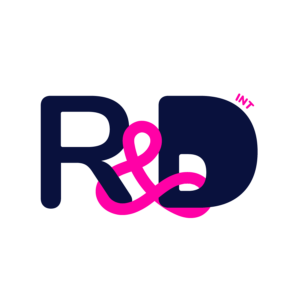By Stella McShera
As the first of its kind initiative, the Clothing Library intends to weave together community, shared values and conscious consumerism…one borrowed garment at a time.
The Clothing Library developed a 6 week pilot in December 2023 that applied degrowth principles and employed behavior change strategies to combat overconsumption fueled by the fashion industry. By enabling access over ownership, the Clothing Library programs are designed to influence a shift from buying to borrowing at scale through existing public låibrary networks.
Operational within public libraries, the Clothing Library lends out ‘looks’ instead of books for free. Located in residential neighborhoods, public libraries offer convenience, community engagement, education, and curated collections – making these familiar and trusted institutions ideal partners for this initiative.
Beyond the commoning of clothing, the Clothing Library aims to make sharing attractive and spark a cultural transition by offering outfits at no cost to save time and money. By making borrowing easy, consumers don’t have to sacrifice their style or sustainability values.
Background
Cost, convenience and quantity influence buying decisions and most consumers choose cheap (cost and construction), convenience (click to buy or return) and quantity (more, rather than coveted clothing). The fashion industry has applied behavioral insights (the study of why we act as we do) to influence purchasing habits. In doing so, shoppers have not only consumed but discarded more as well.
Most consumers don’t realize that clearing their overconsuming conscience and closets by donating unwanted wares to charity only contributes to the fashion industry-induced climate crisis problem. Only 1% of discarded clothing is actually recycled. If instead of donating or discarding, consumers wore their clothing for nine months longer, carbon, water, and waste footprints would be reduced by around 20–30% according to a research report by Waste and Resources Action Program (WRAP).
Model for Change
Public libraries are municipality-owned entities that focus on benefiting the people they serve. They are the cornerstone of communities, providing a physical space where people are welcome to gather and learn in a supportive, inclusive environment. Considered a ‘third place,’ (social surroundings other than work and home), public libraries are important designations for creating and fostering connectedness. As a provider of books, workshops and events for free, public libraries are a great example of a degrowth-aligned business model.
While digital readership is up at public libraries, visitation has dropped by 21% since 2009 and with it, dwindling community engagement. In response, libraries offer a myriad of new programming to increase visitation like seed libraries, tool libraries and library of things.
This kind of forward-thinking, community beneficial programming incorporates the familiar public library model (borrow for free for a set amount of time), convenient locations (often built in neighborhoods for easy access), and existing database (of public library members) to increase the potential of early and widespread adoption. With the existing network of public libraries across the world, alternative models such as the Clothing Library can spread while remaining true to each community’s local needs.
Conclusion
During the six-week pilot, the Clothing Library demonstrated that a borrowing program can influence behavior from overconsumption to voluntary simplicity and that there is an appetite for degrowth in the context of fashion. Data details shared in the report and at the Degrowth Conference in Pontevedra 2024.
Stella McShera started out her career in fashion, went on to study neuroscience and then founded a business incubator. Her passion for understanding human behavior and community connections has been the common thread.
Equality and sustainability has played a central role throughout her career. For her latest focus, she has used her experience in fashion, behavior and business to launch a pilot program that addresses the ecological and social injustices in the clothing industry. The Clothing Library pilot launched Dec 1, 2023.
The opinions expressed in the text do not necessarily reflect those of R&D, but are those of the author.
You can find a Grist article on the project here.
